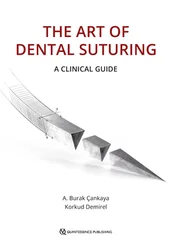I would call him _Napoleon_, but Napoleon made his way to empire
over _broken oaths_ and through a _sea_ of _blood_. This man
_never_ broke his word. "No Retaliation" was his great motto and
the rule of his life; and the last words uttered to his son in
France were these: "My boy, you will one day go back to Santo
Domingo; _forget_ that _France murdered your father_." I would
call him _Cromwell_, but Cromwell was _only_ a _soldier_, and
the state he founded _went down_ with him into his grave. I
would call him _Washington_, but the great Virginian _held
slaves_. This man _risked_ his _empire_ rather than _permit_ the
slave-trade in the _humblest village_ of his dominions.
You think me a fanatic to-night, for you read history, _not_
with your _eyes_, but with your _prejudices_. But fifty years
hence, when _Truth_ gets a hearing, the Muse of History will put
_Phocion_ for the _Greek_, and _Brutus_ for the _Roman_,
_Hampden_ for _England_, _Lafayette_ for _France_, choose
_Washington_ as the bright, consummate flower of our _earlier_
civilization, and _John Brown_ the ripe fruit of our _noonday_,
then, dipping her pen in the sunlight, will write in the clear
blue, above them all, the name of the _soldier_, the
_statesman_, the _martyr_, _TOUSSAINT L'OUVERTURE_.
--WENDELL PHILLIPS, _Toussaint l'Ouverture_.
Practise on the following selections for emphasis: Beecher's "Abraham
Lincoln," page 76; Lincoln's "Gettysburg Speech," page 50; Seward's
"Irrepressible Conflict," page 67; and Bryan's "Prince of Peace," page
448.
EFFICIENCY THROUGH CHANGE OF PITCH
Speech is simply a modified form of singing: the principal
difference being in the fact that in singing the vowel sounds
are prolonged and the intervals are short, whereas in speech the
words are uttered in what may be called "staccato" tones, the
vowels not being specially prolonged and the intervals between
the words being more distinct. The fact that in singing we have
a larger range of tones does not properly distinguish it from
ordinary speech. In speech we have likewise a variation of
tones, and even in ordinary conversation there is a difference
of from three to six semi-tones, as I have found in my
investigations, and in some persons the range is as high as one
octave.
--WILLIAM SCHEPPEGRELL, _Popular Science Monthly_.
By pitch, as everyone knows, we mean the relative position of a vocal
tone--as, high, medium, low, or any variation between. In public speech
we apply it not only to a single utterance, as an exclamation or a
monosyllable (_Oh!_ or _the_) but to any group of syllables, words, and
even sentences that may be spoken in a single tone. This distinction it
is important to keep in mind, for the efficient speaker not only changes
the pitch of successive syllables (see Chapter VII, "Efficiency through
Inflection"), but gives a different pitch to different parts, or
word-groups, of successive sentences. It is this phase of the subject
which we are considering in this chapter.
_Every Change in the Thought Demands a Change in the Voice-Pitch_
Whether the speaker follows the rule consciously, unconsciously, or
subconsciously, this is the logical basis upon which all good voice
variation is made, yet this law is violated more often than any other by
_public_ speakers. A criminal may disregard a law of the state without
detection and punishment, but the speaker who violates this regulation
suffers its penalty at once in his loss of effectiveness, while his
innocent hearers must endure the monotony--for monotony is not only a
sin of the perpetrator, as we have shown, but a plague on the victims as
well.
Change of pitch is a stumbling block for almost all beginners, and for
many experienced speakers also. This is especially true when the words
of the speech have been memorized.
If you wish to hear how pitch-monotony sounds, strike the same note on
the piano over and over again. You have in your speaking voice a range
of pitch from high to low, with a great many shades between the
extremes. With all these notes available there is no excuse for
offending the ears and taste of your audience by continually using the
one note. True, the reiteration of the same tone in music--as in pedal
point on an organ composition--may be made the foundation of beauty, for
the harmony weaving about that one basic tone produces a consistent,
insistent quality not felt in pure variety of chord sequences. In like
manner the intoning voice in a ritual may--though it rarely
does--possess a solemn beauty. But the public speaker should shun the
monotone as he would a pestilence.
_Continual Change of Pitch is Nature's Highest Method_
In our search for the principles of efficiency we must continually go
back to nature. Listen--really listen--to the birds sing. Which of these
feathered tribes are most pleasing in their vocal efforts: those whose
voices, though sweet, have little or no range, or those that, like the
canary, the lark, and the nightingale, not only possess a considerable
range but utter their notes in continual variety of combinations? Even a
sweet-toned chirp, when reiterated without change, may grow maddening to
the enforced listener.
The little child seldom speaks in a monotonous pitch. Observe the
conversations of little folk that you hear on the street or in the home,
and note the continual changes of pitch. The unconscious speech of most
adults is likewise full of pleasing variations.
Imagine someone speaking the following, and consider if the effect would
not be just about as indicated. Remember, we are not now discussing the
inflection of single words, but the general pitch in which phrases are
spoken.
(High pitch) "I'd like to leave for my vacation tomorrow,--(lower)
still, I have so much to do. (Higher) Yet I suppose if I wait until I
have time I'll never go."
Repeat this, first in the pitches indicated, and then all in the one
pitch, as many speakers would. Observe the difference in naturalness of
effect.
The following exercise should be spoken in a purely conversational
tone, with numerous changes of pitch. Practise it until your delivery
would cause a stranger in the next room to think you were discussing an
actual incident with a friend, instead of delivering a memorized
monologue. If you are in doubt about the effect you have secured, repeat
it to a friend and ask him if it sounds like memorized words. If it
does, it is wrong.
_A SIMILAR CASE_
Jack, I hear you've gone and done it.--Yes, I know; most fellows
will; went and tried it once myself, sir, though you see I'm
single still. And you met her--did you tell me--down at Newport,
last July, and resolved to ask the question at a _soirée_? So
did I.
I suppose you left the ball-room, with its music and its light;
for they say love's flame is brightest in the darkness of the
night. Well, you walked along together, overhead the starlit
sky; and I'll bet--old man, confess it--you were frightened. So
was I.
So you strolled along the terrace, saw the summer moonlight pour
all its radiance on the waters, as they rippled on the shore,
till at length you gathered courage, when you saw that none was
nigh--did you draw her close and tell her that you loved her? So
did I.
Well, I needn't ask you further, and I'm sure I wish you joy.
Читать дальше












